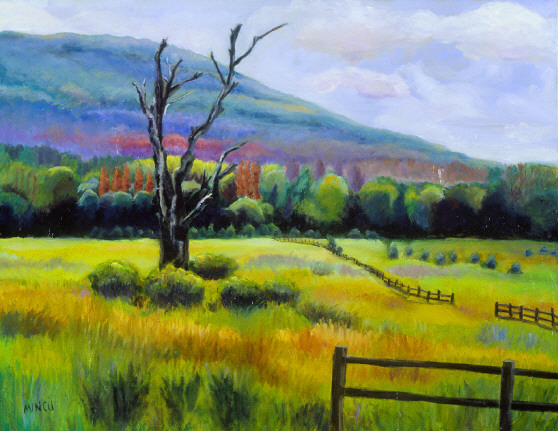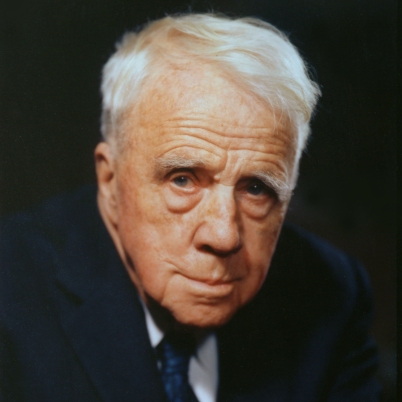Mending Wall: Analysis
Most of Frost’s poems are simple at the surface and have a deeper layer of meaning beneath. “Mending Wall” is no exception. While the poet seems to be relating a simple tale of rebuilding a broken wall between the lands of two farmers, he is talking about a much larger and more profound subject – that of division between human beings. Writing as he did at the beginning of the 20th century, he was witness to the drawing of borders between nations. He knows that such borders are drawn to keep out immigrants and for the security of the citizens of the respective nations. However, Frost believes that such reasons have no basis.
Cultural intermixing is a good thing, according to Frost, and all nations should strive to acquaint themselves with the cultures of their neighboring countries, he feels. Only then can cultural synthesis happen, and great art is created. Art does not follow any borders or boundaries. The same issues are dealt with in American poetry, English poetry, and European poetry as well. In a world of increasing division, Frost feels a kind of camaraderie with all those poets who are writing about the union of the human species all over the world. Like his neighbor, there are people who would do anything to keep out so-called intruders and to protect their property with all their might, but Frost wants to convince all of them to demolish the walls they put up between themselves. He wants there to be an open dialogue between such people so that problems can be solved in unison to make the world a better place.
Mending Wall: Annotations
Please note: N= noun, V=verb, Adj=Adjective, Adv=Adverb, P=Preposition
Frozen-ground-swell (N): the uplift of soil or other surface deposits due to expansion of groundwater on freezing; also called a frost heave
Spills (V): Third person present tense of the word “spill,” that is, (with reference to the contents of something) to empty out or be emptied out onto a surface
Boulders (N): Plural form of the word “boulder,” that is, a large rock, typically one that has been worn smooth by erosion
Abreast (Adv): Side by side and facing the same way
Yelping (V): Present participle form of the word “yelp,” that is, to utter a short, sharp cry, especially of pain or alarm
Mending (V): Present participle form of the word “mend,” that is, repair (something that is broken or damaged)
Loaves (N): Plural form of the word “loaf,” that is, something having an oblong shape
Wear (V): Damage, erode or destroy by friction or use
Orchard (N): A piece of enclosed land planted with fruit trees
Cones (N): Plural form of the word “cone,” that is, the dry fruit of a conifer, typically tapering to a rounded end and formed of a tight array of overlapping scales on a central axis which separates to release the seeds
Offense (N): Annoyance or resentment brought about by a perceived insult to or disregard for oneself
Elves (N): Plural form of the word “elf,” that is, a supernatural creature of folk tales, typically represented as a small, delicate, elusive figure in human form with pointed ears, magical powers, and a capricious nature
Grasped (V): Past tense of the word “grasp,” that is, to seize and hold firmly
Savage (N): (Chiefly in historical or literary contexts) a member of a people regarded as primitive and uncivilized
Armed (Adj): Equipped with or carrying a firearm or firearms
Mending Walls: Poetic Devices
Rhyme scheme:
The poet does not follow any identifiable rhyme scheme in this poem.
Rhetorical devices:
Apostrophe:
This rhetorical device is used when a poet addresses his or her words to an absent audience or even a non-living entity. In this poem, the poet uses the device of the apostrophe in line 19 when he and his neighbor tell the boulders to stay balanced even after they have turned around after completing the job of mending the wall made of those boulders. He again uses it in lines 30 – 35 when he speaks to his neighbor about the dispensability of the wall.
Personification:
This rhetorical device is used to bestow human qualities on something that is not human. In this poem, the poet uses the device of personification in lines 25 – 26 with respect to the apple trees in his orchard. He gives the apple trees the human ability to walk and eat.
Epigram:
This rhetorical device is used to make a brief, interesting, memorable, and sometimes satirical statement. In this poem, the poet uses the device of epigram in lines 29 and 46 when he reports his neighbor’s saying that good fences make good neighbors. This means that there is harmony in non-interference.
Simile:
This rhetorical device is used when an overt comparison is made between two different things. In this poem, the poet uses the device of simile in lines 39 – 41 when he compares his neighbor to a savage from the stone age and also uses the word “like” while making this comparison.
Mending Wall: Central Idea
The wall between the lands of two farmers is broken down by some unknown force every spring, and they must rebuild it. The poet himself does not want the wall there and tries to convince his neighbor of the same. However, his neighbor is sure that fences are required to maintain peaceful relations with neighbors.
Mending Wall: Themes
Hints about the perpetrator: Though Frost never names the person or thing that breaks down the wall repeatedly, he does leave ample hints about the true identity of the perpetrator. The culprit in question is the poet himself. The first hint about this is given in line 2 when he uses the phrase “frozen-ground-swell.” Another tern for this phenomenon is frost heave. Frost is also the poet’s own surname. Again, towards the end of the poem, he talks about elves. Now elves are known to be mischievous in nature. The poet also says that springtime has brought about the mischief in himself. So he has become elf-like. However, he isn’t exactly an elf; he doesn’t have their pointy ears or their supernatural powers. He is a mere mortal, and he doesn’t actually have the courage to admit that it was he who broke down the wall. That is why he would prefer it if his neighbor would come forward and accuse him of the same. If the neighbor were to do so, Frost would openly admit to his crime. Until the neighbor asks, though, the poet will only try to convince him that the wall is unnecessary and hope he will agree not to rebuild it.
Savagery and darkness: The poet says that his neighbor appears to be a savage from the stone age using the stones of the wall as weapons, and also that he has a kinship with darkness. Both savagery and darkness are meant to symbolize the small-mindedness of his neighbor. In the stone age, the man was still uncivilized. The world had not yet come under his control, and he felt that he had to jealously guard his few possessions from any creature that came his way or any force of nature that he is unaware of. That is why the stone age man fashioned weapons out of stone (not having discovered metals as yet) and used them in constant combat with anything he might be confronted with. The poet’s neighbor also jealously guards his land and tries to keep out Frost from his property by building the stone wall, and Frost thinks that is most unjust of him. Frost also says that the darkness he notices in his neighbor is not the darkness of the shade of trees. Rather it is a darkness of the heart. He is not open-minded and generous like Frost. He does not believe that all men should interact with each other. He is determined to wall himself in and wall everyone else out.
Mending Wall: Tone
The poet’s tone here is quite mysterious when he suggests that some natural or supernatural force is tearing down the wall without being seen or heard. However, this tone changes to one of mischief when he tries to convince his neighbor not to rebuild the wall. He could have been hostile towards his neighbor’s stubborn refusal to listen to him, but he is not. Instead, he chooses to listen to his neighbor speak about the utility of fences and go about his own business every spring.
Conclusion:
“Mending Wall” is typical of Frost’s style of writing. It describes something simple only to preach something far more profound. Frost’s message about the dispensability of borders is an important one to be making in 1914 – the year the First World War started. His belief that all men should stand united is a message for all times and all seasons. The fact that he could couch such inspirational messages in such uncomplicated verses is what makes Frost one of the greatest American poets of all time. Other than Mending Wall: Analysis, you can also refer to Mending Wall Summary here.
Some online learning platforms provide certifications, while others are designed to simply grow your skills in your personal and professional life. Including Masterclass and Coursera, here are our recommendations for the best online learning platforms you can sign up for today.
The 7 Best Online Learning Platforms of 2022
- Best Overall: Coursera
- Best for Niche Topics: Udemy
- Best for Creative Fields: Skillshare
- Best for Celebrity Lessons: MasterClass
- Best for STEM: EdX
- Best for Career Building: Udacity
- Best for Data Learning: Pluralsight
















